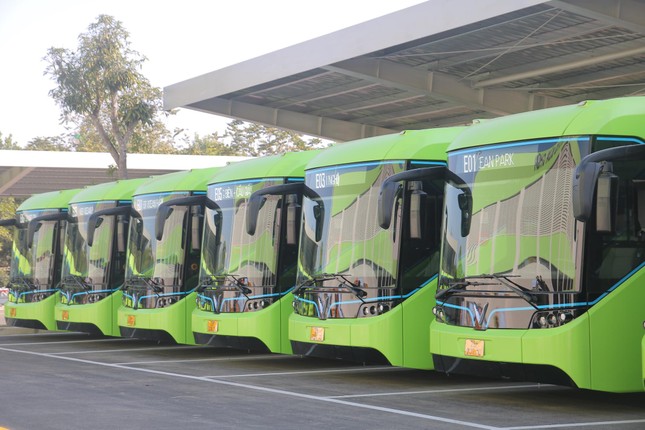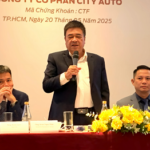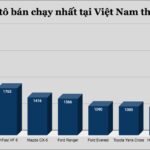According to research by the US Environmental Protection Agency (EPA), the burning of gasoline and diesel fuel by road vehicles is the largest contributor to greenhouse gas emissions in the transportation sector, accounting for approximately 85%. Hence, the goal of reducing carbon emissions in transportation heavily relies on curbing emissions from road vehicles.
In Vietnam, electrifying road transport fleets is a pivotal strategy in achieving the Net Zero target by 2050 to combat global climate change. The World Bank (WB) estimates that to realize Net Zero, at least 50% of urban vehicles in Vietnam must be powered by electricity and green energy by 2030. By 2050, all nationwide road motor vehicles should be utilizing electricity and green energy. Concurrently, there is a need to develop the infrastructure for charging stations and the production and assembly of electric vehicles for 2030 and 2050.

Most of the intra-city buses operating in Vietnam are diesel-fueled, except for a few pilot green buses in Hanoi and Ho Chi Minh City. Photo: Screenshot.
Currently, Vietnam has approximately 9,600 intra-city public buses in operation, with Hanoi and Ho Chi Minh City each having around 2,000 buses. The majority of these intra-city buses are diesel-fueled, except for a few pilot green buses in Hanoi and Ho Chi Minh City that utilize compressed natural gas (CNG) and electric buses.
WB suggests that from now until 2030, the 9,600 diesel-fueled buses in Vietnam’s urban areas need to be gradually phased out and replaced with electric buses.
In the cities under the central government, nearly 700 diesel-fueled buses should be replaced with electric ones annually, with 290 in Hanoi and 300 in Ho Chi Minh City. The remaining areas of Vietnam need to replace a total of 716 diesel-fueled buses that are currently in operation each year from now until 2030.
In addition to transitioning away from diesel-fueled buses, there is a need to introduce more electric buses into the fleets of centrally-governed cities. Consequently, by 2030, Hanoi and Ho Chi Minh City are expected to require approximately 6,000 and 4,500 electric buses, respectively, to meet the target proportion of vehicle usage based on the projected population size. The necessary number of buses by 2030 for Da Nang, Hai Phong, and Can Tho is estimated to be around 850, 760, and 620, respectively.

By 2030, Hanoi and Ho Chi Minh City are expected to require approximately 6,000 and 4,500 electric buses, respectively. Photo: Duong Lan.
On the other hand, transitioning from old diesel-fueled buses to new electric ones necessitates considerable investment. The financial feasibility of this transition hinges on policies and investment projects aimed at sustaining the declining ridership and increasing ticket revenue from public bus operations. Therefore, the shift to electric buses must be accompanied by a shift in people’s travel preferences from personal motorcycles and cars to public transportation.
The Power of Partnership: Grab’s Collaboration with the World’s Leading Electric Vehicle Manufacturer Guarantees Driver Income of VND 25 Million per Term
With this agreement, Grab guarantees that drivers can earn an impressive income of 20 to 25 million Vietnamese Dong during each 30-day work period.
“City Auto’s Shareholder Meeting: Foraying into Electric Vehicles, Electing Chairman’s Son to the Board”
At the 2025 Annual General Meeting held on the morning of May 20, City Auto Joint Stock Company (HOSE: CTF) unveiled several new strategic orientations. Notably, the company announced its plans to expand into the electric vehicle sector and its ambition to move deeper into the automotive value chain, aiming to transcend its traditional role as a mere distributor.











































